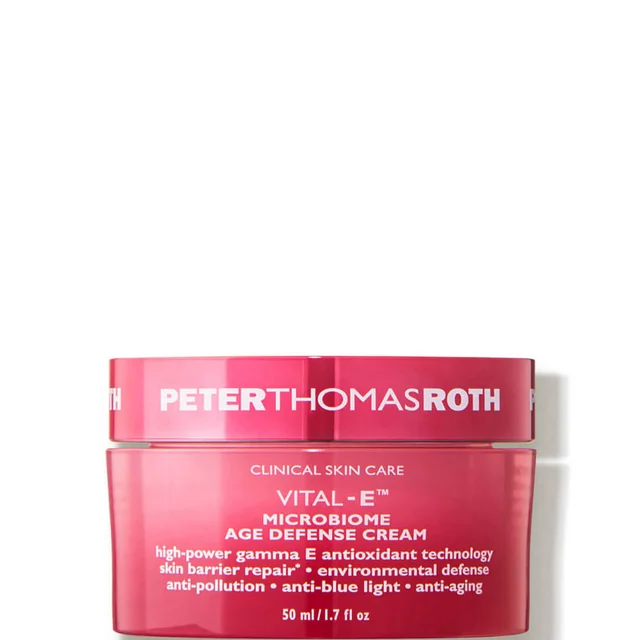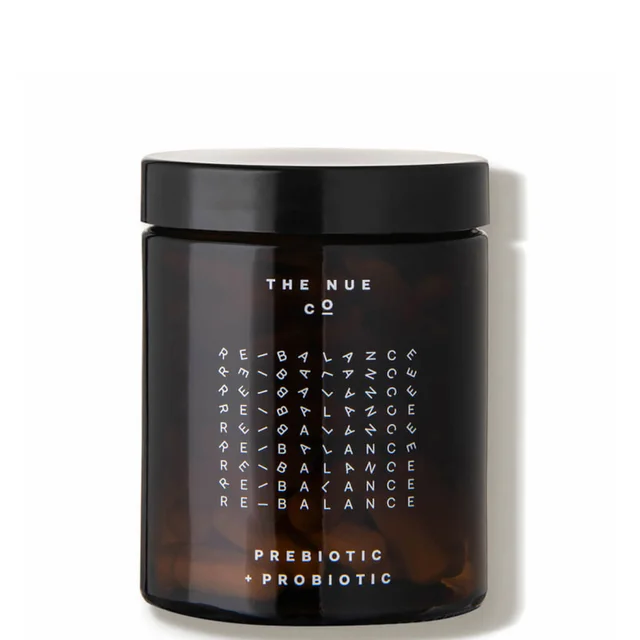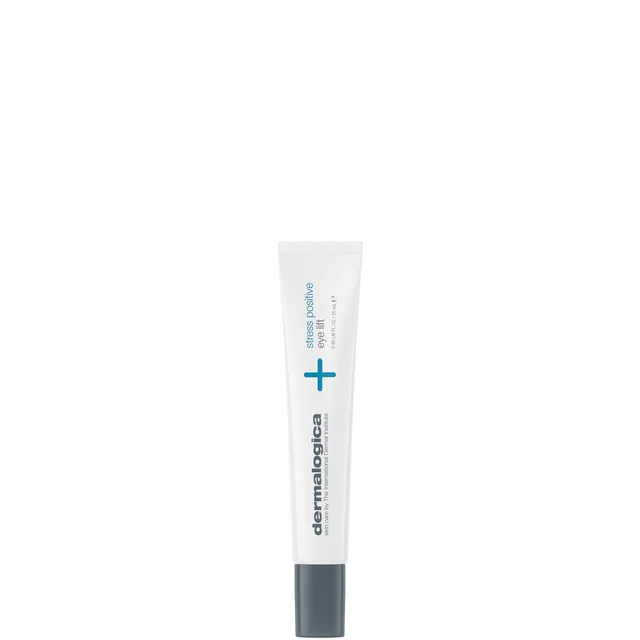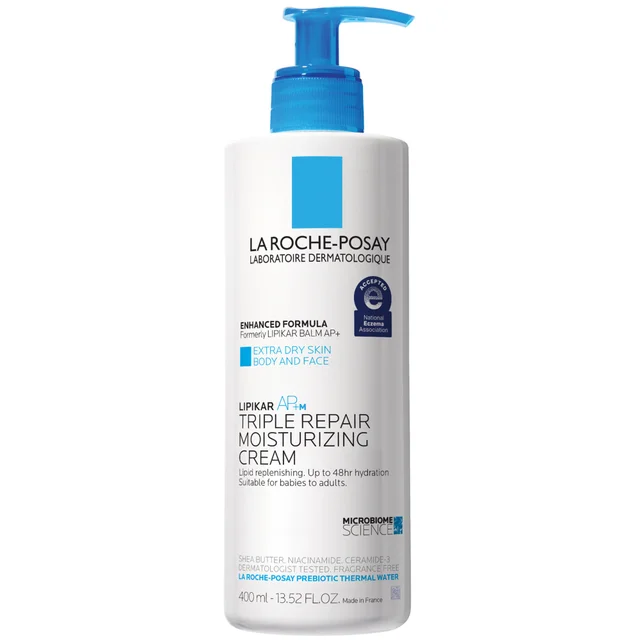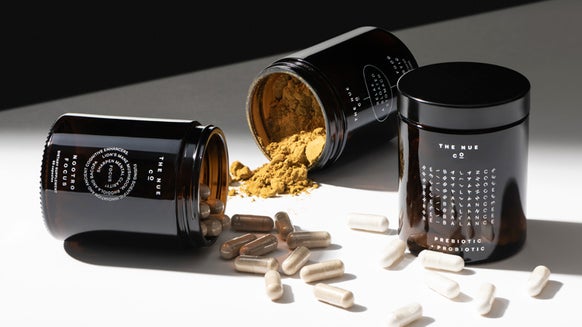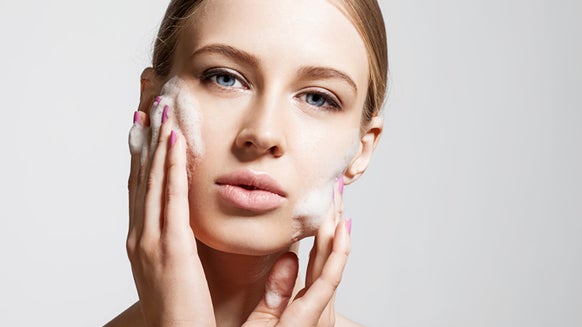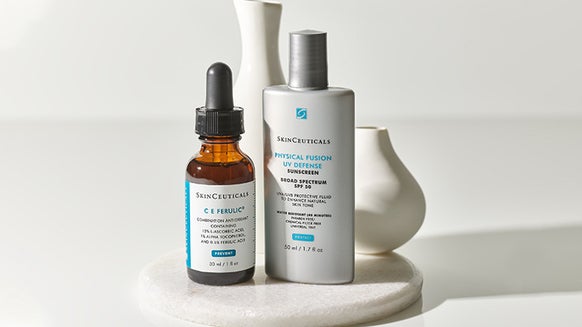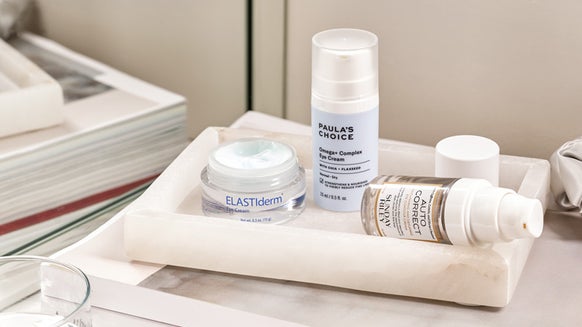What Is the Skin Microbiome? (Plus, What It Means for Clearer, Healthier Skin)

Once shrouded in mystery, the skin microbiome is a burgeoning topic in the skin care world and for good reason: This massive collection of mostly harmless bacteria resides on our skin to protect us from harmful germs and toxins. Sound more like the plot to a sci-fi novel? Maybe. Given the fact that we have ten times more bacterial cells than human cells, one could argue that we are merely vessels for this invisible community. But what exactly are these tiny species and why have they taken up residency on our skin?
To get a better understanding, we reached out to leading experts to learn more about this topic.
What is the skin microbiome and why is it important?
The microbiome is defined as a collection of microorganisms that live in a particular place. Although each person is unique, the average person has more bacterial cells than human cells. And depending on the skin’s texture, thickness and humidity, different microbes can inhabit different regions of your skin. In fact, the face, chest and back, being the oiliest parts of our bodies, will often house higher amounts of bacteria, making them more prone to acne.
As Dr. Whitney Bowe, a board-certified dermatologist in New York and author of The Beauty of Dirty Skin explains, “Our skin’s microbiome is a rainforest of diverse organisms which live in and on your skin’s various layers, from the deep-down fat cushion all the way up to your epidermal cells up high. In fact, there are more than one trillion bacteria in the skin, originating from approximately one thousand different species.’’
Though the word bacteria is usually associated with illness, not all bacteria are bad. In fact, our bodies work in tandem with bacteria from the inside out. These tiny helpers work to keep the bad stuff away, while happily going along, minding their business (sort of like the perfect roommate that you never see). Thanks to modern research, we now know that the microbiome directly influences skin, specifically in the formation of inflammation and acne. And since our skin is a living, breathing organ---not to mention our largest one---we should think of it as a fertile soil: it needs the proper care and maintenance, along with the right pH to stay healthy and thriving. In short, healthy skin is about creating a healthy environment for these microorganisms.
Good vs. bad bacteria
“We all have good and bad bacteria residing on our skin,’’ explains Dr. Roshini Raj, gastroenterologist and internist and founder of probiotics skin care brand TULA. She adds, “When the balance shifts towards the bad bacteria, skin irritation or blemishes can develop.’’ Inflammation can arise as the result of an imbalance, which can manifest as acne, eczema and psoriasis.
As Dr. Bowe explains, “The most studied families of oral probiotics (the good bacteria) are lactobacillus (from lactic acid) and bifidobacterium. Several strains of lactobacillus have anti-inflammatory properties that help reduce the risk of skin disorders from the inside out. They have also been shown to improve the strength of our skin barrier, keeping our skin nourished and hydrated.”
On the flip side, bad bacteria, such as staph and certain E. coli strains, may naturally grow out of control and cause us harm or contribute to unhealthy skin by invading tissues and damaging them, eventually leading to myriad skin diseases.
What about bacteria in our gut?
Gut microbiome helps break down food, absorb nutrients and eliminate unwanted toxins. When there is an unhealthy gut microbiome, it can cause gastrointestinal issues, which could also lead to dull skin and acne. Research shows that acne-prone and rosacea skin types have seen improvement with continued probiotic usage, which balances the gut. While there’s still much more to uncover about this vast inner community, here are a few key facts to greater understand the gut microbiome:
Our digestive tract is home to nearly 99% of our entire microbiome. We have a personalized set of bacteria that we acquire during birth and it grows in size over the years to protect us and keep us strong. - Our microbiome changes throughout the course of our lives due to varying factors such as age, gender, diet, pregnancy and genetics influencing it.
The “gut-brain-skin-axis’’ theory suggests that stress from a bad diet may contribute to leaky gut, which causes toxins to be released into the bloodstream, thus triggering inflammation.
Finding the balance with probiotics
Needless to say, the more good bacteria in our bodies, the less chance of bad bacteria taking over and causing us harm, such as inflammation. But according to experts, it’s more about having a healthy balance and diversity of good and bad bacteria, versus eliminating all the bad and replacing it with the good.
These days, attaining a healthy balance is easier than ever thanks to the wealth of probiotic supplements available or eating more probiotic-rich foods, such as yogurt, kefir, sauerkraut, miso and kombucha. “I know firsthand from my GI practice that the environment in which these species of bacteria live needs to be in balance. If you have a healthy balance of probiotics, your overall health improves,’’ says Dr. Raj.
When taking supplements, be sure the bacteria are live and look for CFUs (colony forming units) in the billions, since anything less isn’t as potent. Specifically, adding in lactobacillus acidophilus cultures may reduce systemic inflammation, oxidative stress and glycemic control, all contributing factors in acne development. You'll also want to eat fresh, whole foods and fewer sugars, greasy and processed foods.
Keeping skin bacteria happy
Taking care of ourselves via a healthy diet and lifestyle is just one facet of achieving our best skin. A healthy skin microbiome not only protects us from pathogens, damage and dryness, it can also lead to more radiant and healthy skin. Two of the best steps we can take in our daily routines is limiting the amount of anti-bacterial skin care products (which can also destroy good bacteria along with the bad) and not over-cleansing our skin. Instead, reach for a gentle, pH-balanced cleanser and wash your face no more than twice a day to help maintain the skin’s natural oils and microbial balance.
Additionally, using prebiotic- and probiotic-rich products can have a beneficial effect on our skin by keeping it moisturized and delaying signs of aging. According to Dr. Raj, “Topical probiotics actually help strengthen the skin’s natural ability to defend itself by forming a type of 'protective shield' on the skin’s surface. This makes the skin more resistant to damage from environmental stressors, helps maintain moisture and even helps fight off UV damage.’’
Prebiotics are another vital ingredient that are starting to make waves in the skin care industry. “Prebiotic---which refers to the food the good bugs like to eat---are like the nourishing food that naturally allows healthy, good bacteria to thrive on your skin. Some prebiotics encourage specific healthy strains of bacteria to grow and others increase the diversity of the bacteria on your skin, which is also very important,’’ explains Dr. Bowe.
Microbiome-balancing skin care products
Ready to add even more skin-friendly products to your routine? Below, you’ll find seven microbiome-balancing products that we love!
1. Peter Thomas Roth Vital-E Microbiome Moisture Defense Cream (1.7 fl. oz.)
2. The Nue Co. Prebiotic Probiotic (60 capsules)
3. Eminence Organic Skin Care Clear Skin Probiotic Cleanser 8.4 fl. oz
5. Dermalogica Stress Positive Eye Lift (0.85 oz.)
6. La Roche-Posay Lipikar Balm AP+ M (Various Sizes)
7. ARCONA Four O'Clock Flower (35 ml.)

From the latest hair and makeup trends to the best solutions for your skin issues, we've got all your beauty concerns covered!
Related Posts

Dermstore Chats With: Dr. Roshini Raj of TULA on the Power of Probiotic Skin Care

